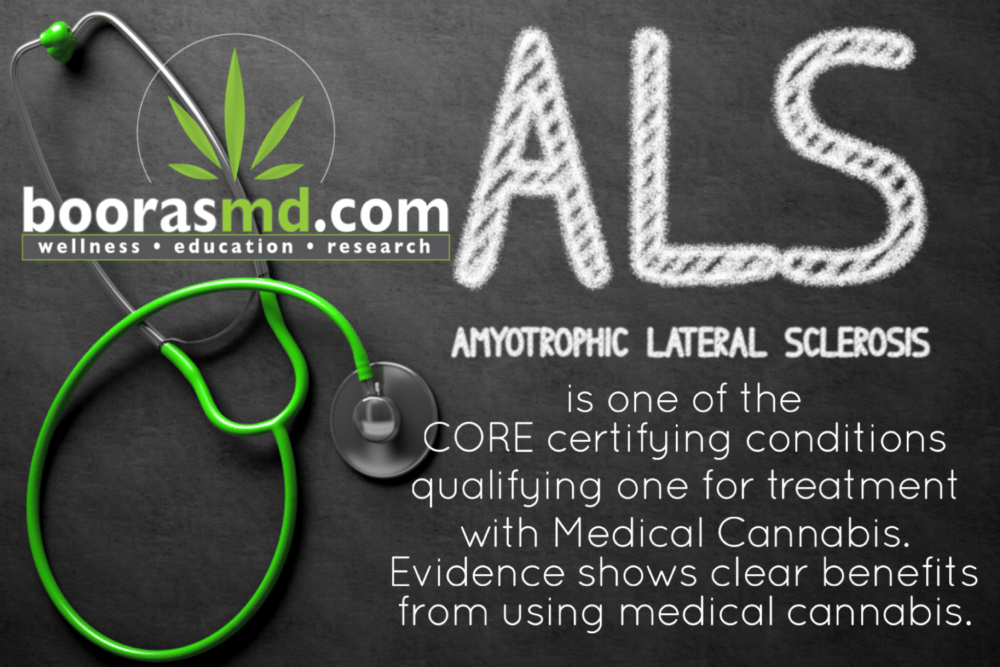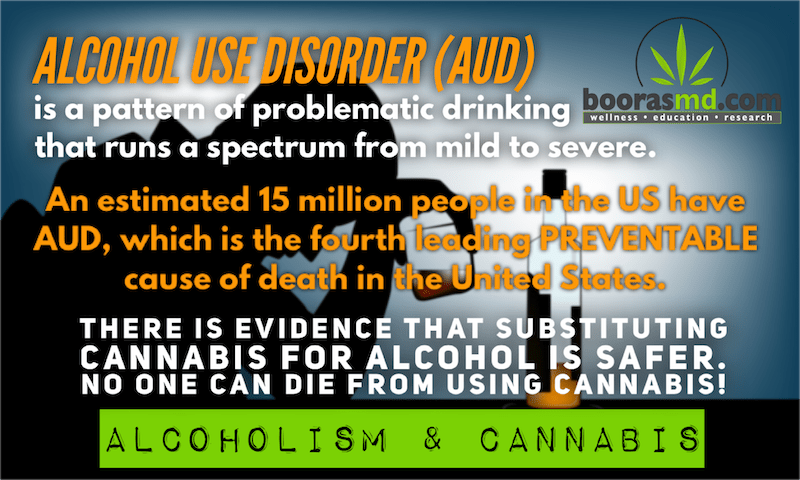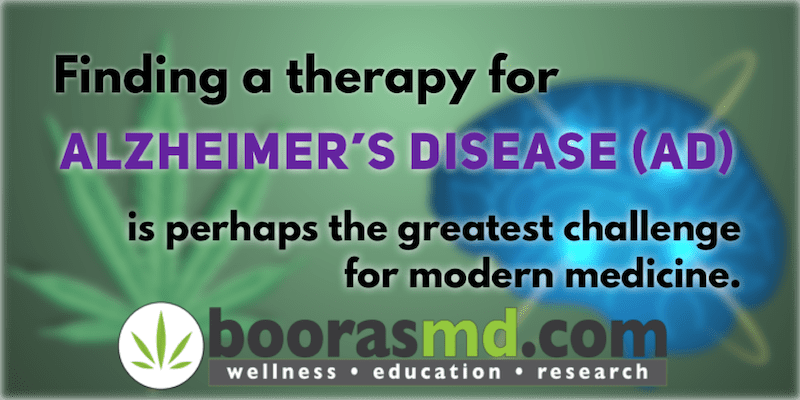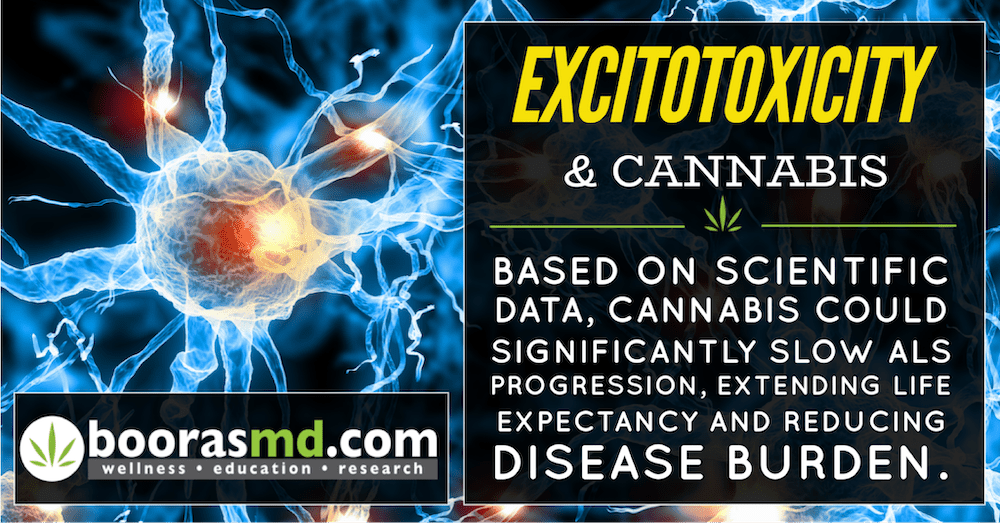ALS and Medical Marijuana (Cannabis)
Amyotrophic Lateral Sclerosis (ALS) and Medical Marijuana (Cannabis)
ALS is one of the core certifying conditions qualifying one for treatment with Medical Cannabis.
Description: ALS is a disorder of unknown cause that attacks the nerve fibers that control the actions of muscle. It is a fatal motor neuron disease resulting in an inability to control muscle activities. For unknown reasons, athletes and those who have served in the military have a higher incidence of this devastating disease. The median survival for people with ALS is 3 years.
Nerve damage in ALS is thought to be caused by 2 main factors.
- Oxidative stress due to excessive production of free radicals. Medical Cannabis is a known antioxidant and helps decrease the nerve tissue damage caused by free radicals.
- “Excitotoxicity“. The amino acid Glutamate is released when nerve tissue is injured. Excessive amounts of glutamate causes further death of cells in the body, which is called Excitotoxicity. Use of THC + CBD inhibits this process. https://boorasmd.com/education/articles/excitotoxicity-and-cannabis/
Conventional treatment: There is currently no known cure for ALS.
*Rilutek (riluzole) was approved by the FDA in 1995 and is thought to interfere with the activity of glutamate in the brain and spinal cord (see Excitotoxicity). Although ALS experts disagree about its relative value, it probably does provide a survival advantage that is likely more than the 3 months reported in the package literature.
*Radicava (edaravone) was approved by the FDA in 2017 and is thought to counteract excessive oxidative stress which is seen in people with ALS. It is given as a daily infusion for 10-14 days in row, once a month. The typical cost of each infusion is $1000 (approximately $146,000 annually). It has been demonstrated to slow the decline of physical function in people with ALS.
CBD and THC both decrease the release of glutamate, reducing Excitotoxicity and cell death!
Cannabinoids are well known as antioxidants and protectors of nerve cells. The US Government actually obtained a federal patent on CBD in 1999 after it was clearly established that cannabinoids serve to protect us from nerve damage.
In addition to having powerful antioxidant, anti-inflammatory and neuroprotective effects, Medical Marijuana (Cannabis) also has an important role for symptom management including pain reduction, muscle relaxation, reduction of excessive saliva, appetite stimulation, sleep induction and dilation of the bronchi in the lungs.
Many physicians have been reluctant to endorse the use of Medical Marijuana (Cannabis) because we do not have data from traditional randomized clinical trials. However, for a universally fatal condition of this magnitude, it makes sense to try whatever resources are at ones disposal! The earlier treatment is initiated, the better. People with ALS deteriorate in a step-wise fashion and do no usually regain a function that has been lost. https://boorasmd.com/education/articles/why-dont-more-doctors-know-about-the-medicinal-benefits-of-cannabis/
Personally, I can not fathom why any medical provider would not want a person with ALS to at least try medical cannabis.
I have personally seen my Father, a retired Medical Doctor diagnosed with ALS in 2013, enjoy a greater quality of life due to significant slowing of his ALS progression after starting cannabis. Shortly after diagnosis he was told that his life expectancy was about 1 more year! His doctors did not know he was treating with Medical Cannabis. At one point the Neurologists taking care of Dad questioned whether he truly had ALS, saying to him, “you are not deteriorating at the rate that we are used to seeing for someone with ALS so you might have something else going on, like Primary lateral sclerosis (PLS)”.
As compassionate physicians, we should use every available arrow in our quiver to help our patients!
***Dad passed away, peacefully and at home, in late June 2020, 7 years after his diagnosis and one month shy of his 89th birthday.
Sources:
1. https://www.projectcbd.org/about/book-excerpt/cannabinoids-and-oxidation
2. https://www.google.com/patents/US6630507
3. Raman et al. 2004. Amyotrophic lateral sclerosis: delayed disease progression in mice by treatment with a cannabinoid. Amyotrophic Lateral Sclerosis & Other Motor Neuron Disorders 5: 33‐39. https://pubmed.ncbi.nlm.nih.gov/15204022/
4. Carter et al. 2010. Cannabis and amyotrophic lateral sclerosis: hypothetical and practical applications, and a call for clinical trials. American Journal of Hospice & Palliative Medicine 27: 347‐356. doi: 10.1177/1049909110369531. https://pubmed.ncbi.nlm.nih.gov/20439484/
Written by Charlie Booras, MD on 8/8/20
Updated on October 5, 2021









